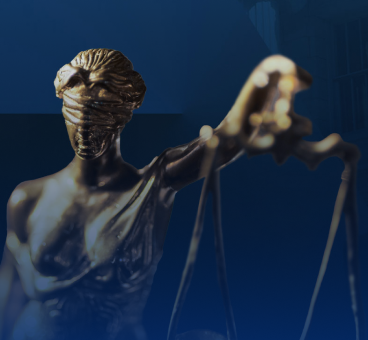It is never easy to lose a loved one suddenly. Learning that their passing was avoidable and resulted from an act of negligence is especially difficult. In these situations, one of the ways to pursue a measure of justice for a lost loved one is through a wrongful death lawsuit.
If you are considering a wrongful death lawsuit, it is important to understand how these claims work under the law. Every state has a different approach to wrongful death claims. A Rehoboth personal injury lawyer can advise you on your rights and legal options in these cases.
Can I File a Wrongful Death Lawsuit?
The law strictly limits the right to file a wrongful death lawsuit in Rehoboth. While many jurisdictions allow spouses and other surviving family members to file a wrongful death lawsuit, that is not the case in Rehoboth. Instead, the law requires that the executor or administrator of the decedent’s estate file the case.
Of course, the executor or administrator of an estate is often a surviving relative of the decedent. There are different ways that a person could be appointed to this position. Often, a last will and testament will nominate a specific individual to serve as the executor of the estate. This individual has a range of duties beyond just pursuing wrongful death lawsuits. They are responsible for addressing all of the assets and debts of the deceased person.
If the will does not specify an executor or that person cannot serve in the role, the court has the power to appoint someone to the position. Again, it is common for the court to appoint an individual that is a family member of the deceased for this role.

You Could Be Entitled to Damages
Even though you cannot file a wrongful death lawsuit unless you are the executor of the estate, that does not mean you are not entitled to the proceeds of a successful claim. The executor of the estate (should they be an outside party) has the right to pursue these cases, but they are not entitled to the proceeds. Instead, these damages are awarded to the surviving relatives of the decedent.
The compensation that is available in these cases can differ. They are similar to personal injury cases in some ways, in that they could result in the recovery of compensation that the deceased party could have pursued had they survived. However, some damages are unique to wrongful death cases as well.
Funeral and Burial Expenses
When negligence results in a person’s passing, the responsible party could be liable for any expenses related to their funeral or burial. The court is required to award “reasonable” funeral or burial expenses, meaning there could be limits on this type of compensation.
Care and Companionship
Often, the loss of a loved one has a profound impact on the personal lives of their surviving relatives. Damages could be available for the counsel, advice, care, and companionship that a deceased party could have provided had they survived.
Financial Support
In addition to emotional support, surviving relatives could also be entitled to compensation for the lost future financial support they would have enjoyed from their deceased family member.
Conscious Suffering
Conscious suffering is the term that describes the pain and suffering the deceased experienced before their passing. When these claims are successful, the proceeds go to the estate of the deceased.
Punitive Damages
Punitive damages are not designed to help the surviving relatives recoup their financial losses following the death of a family member. Instead, these damages are designed to punish the at-fault party for their conduct. This type of compensation is rarely awarded, and it only applies in cases where a death stems from “malicious, willful, wanton or reckless conduct.”

What Is the Deadline to File a Wrongful Death Lawsuit?
There is a limit on the amount of time that can pass before the filing of a wrongful death lawsuit. This time limit—frequently referred to as the statute of limitations—generally expires after three years. The three-year period usually begins on the date of a person’s death. However, this deadline could be extended if the executor or administrator did not immediately know a wrongful death lawsuit was possible. The failure to file a lawsuit within the allowed time could result in permanent dismissal, so it is vital to seek out legal counsel right away.

When Is a Death Wrongful?
The definition of “wrongful death” is found at Mass. Gen. Laws Ann. ch. 229, § 2. According to the statute, the definition applies to any death resulting from negligence, a breach of warranty, or a willful, wanton, or reckless act. In general, the grounds for a wrongful death lawsuit are the same as a personal injury case. The difference is that the injuries in these cases proved to be fatal. Some of the most common grounds for a wrongful death lawsuit include:
- Car accidents
- Medical malpractice
- Violent assault
- Motorcycle accidents
- Slip and fall accidents
- Defective products
- Truck accidents
Some situations cannot lead to a wrongful death lawsuit, even when negligence plays a part in the passing of another individual. These situations include deaths caused by streetcar companies as well as some work-related deaths. Even if a wrongful death case is not an option, other legal avenues could result in financial compensation in these situations. An attorney can guide you on your legal options.

Let Our Firm Advocate for You Following the Passing of Your Loved One
The unexpected loss of a loved one is never easy. Given the emotional hardship that follows an unexpected death, it is understandable if the thought of pursuing a lawsuit seems impossible. An attorney could ensure that your interests are protected during a wrongful death lawsuit while you focus on dealing with the grief from the loss.
The team at GED Lawyers understands the difficult nature of wrongful death cases. We provide compassionate legal counsel during some of the most difficult times of a person’s life. Reach out to a Rehoboth wrongful death lawyer today for a free consultation.
